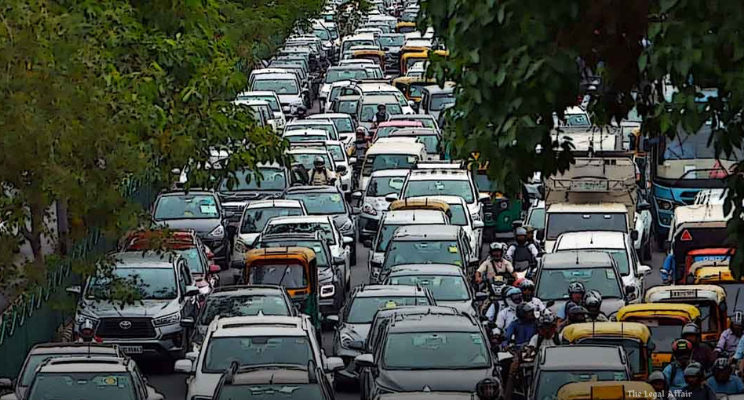Gujarat HC Demands Permanent Action on Traffic, Encroachments
The Gujarat High Court has taken a firm stance against temporary civic measures, directing the Ahmedabad Municipal Corporation (AMC) and Joint Commissioner of Police (Traffic) to ensure that encroachment removal and traffic regulation efforts continue beyond court-mandated periods. The bench, comprising Justice AS Supehia and Justice Gita Gopi, made this observation while hearing a contempt-of-court petition filed by advocate Amit Panchal. The petition sought strict compliance with previous HC directives concerning traffic congestion, illegal parking, road maintenance, and street encroachments—issues that have persisted despite 62 separate court orders. The court emphasised that authorities must adopt a long-term approach rather than react only when legal interventions demand action. The next hearing, scheduled for two weeks later, will review the action taken report submitted by the civic authorities.
The AMC and the traffic police, in their affidavits, detailed various measures undertaken to address the concerns raised by the court. Encroachment removal drives have been conducted, and improvements in road conditions have been reported. However, the HC was unconvinced that these initiatives would be sustained unless structural changes were made in the city’s traffic management system. The court also highlighted the persistent problem of road obstructions caused by eateries and vendors, particularly in commercial zones. Furthermore, it raised concerns about the safety of the Traffic Regulation Brigade (TRB) personnel, who frequently encounter resistance from defiant motorists. In many cases, traffic violators refuse to stop when signalled, raising questions about the effectiveness of enforcement measures.
The issue extends beyond traffic and road congestion—it is a sustainability concern that impacts urban mobility and public health. Encroachments lead to inefficient use of road space, increasing vehicle idling time and exacerbating carbon emissions. A study on urban traffic congestion indicates that unregulated street vending and illegal parking can reduce road capacity by up to 30%, worsening pollution levels and travel time. Ahmedabad, which aspires to be a smart city, must integrate sustainable urban planning principles into its traffic policies. The court’s directive highlights the urgent need for a systemic shift, with technology-driven solutions such as automated traffic monitoring, improved pedestrian pathways, and green urban spaces to enhance mobility while reducing environmental impact.
As the HC continues to monitor compliance, the onus remains on AMC to institutionalise regular encroachment clearance and better traffic management practices. The approval of infrastructure projects, such as the Adaptive Traffic Control System (ATCS) across 400 junctions, is a step in the right direction. However, without stringent enforcement and a civic framework that prioritises long-term solutions, the city risks falling back into cycles of congestion and inefficiency. The Gujarat High Court’s observation serves as a critical reminder that effective governance cannot be driven solely by legal compulsion—it requires proactive civic planning, sustainable urban policies, and strict accountability at all administrative levels.


